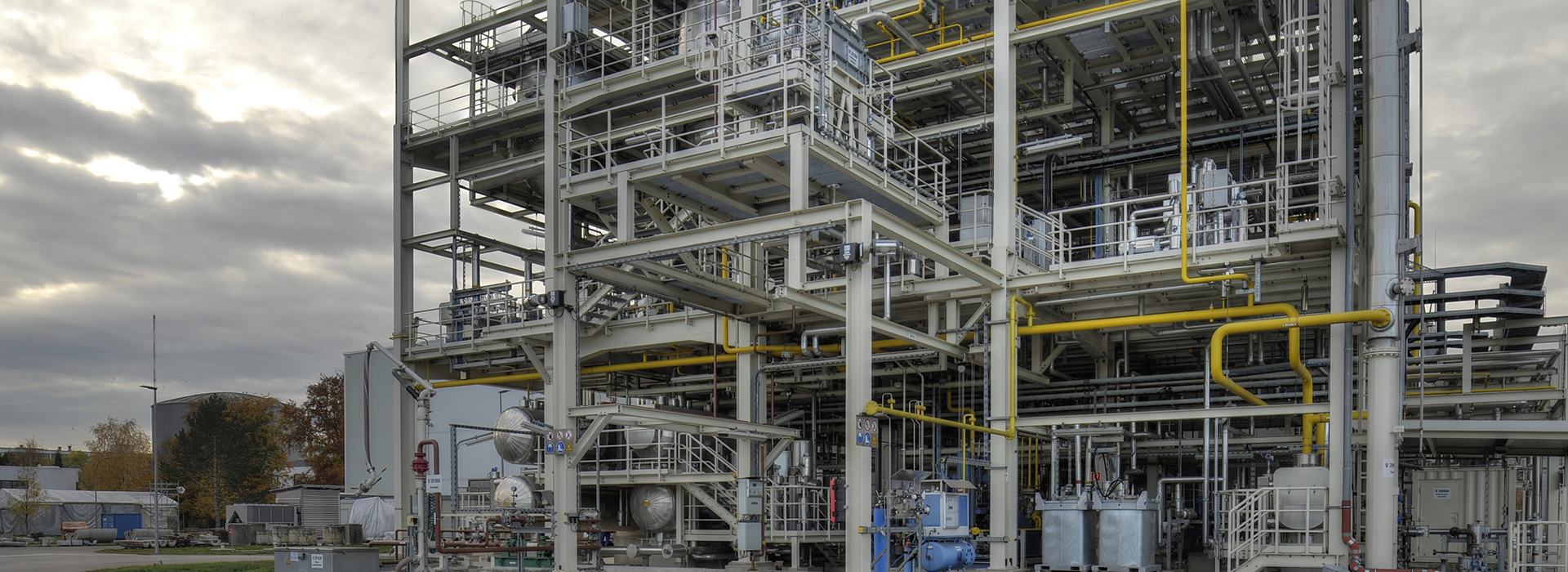Institute of Catalysis Research and Technology (IKFT)
The Institute of Catalysis Research and Technology was founded 2011. Its mission is to bridge the gap between fundamental and applied research and the development of new technologies and products in the field of catalysis and process technology of catalyzed processes. The focus of our work is the sustainable utilization of alternative feedstocks and their conversion into energy carriers intermediates. This includes the development of new catalytic systems based on a fundamental understanding of processes on a molecular level. The institute receives basic funding from the Helmholtz Association's program-oriented funding, largely in the Energy research field in the program Materials and Technologies for the Energy Transition.
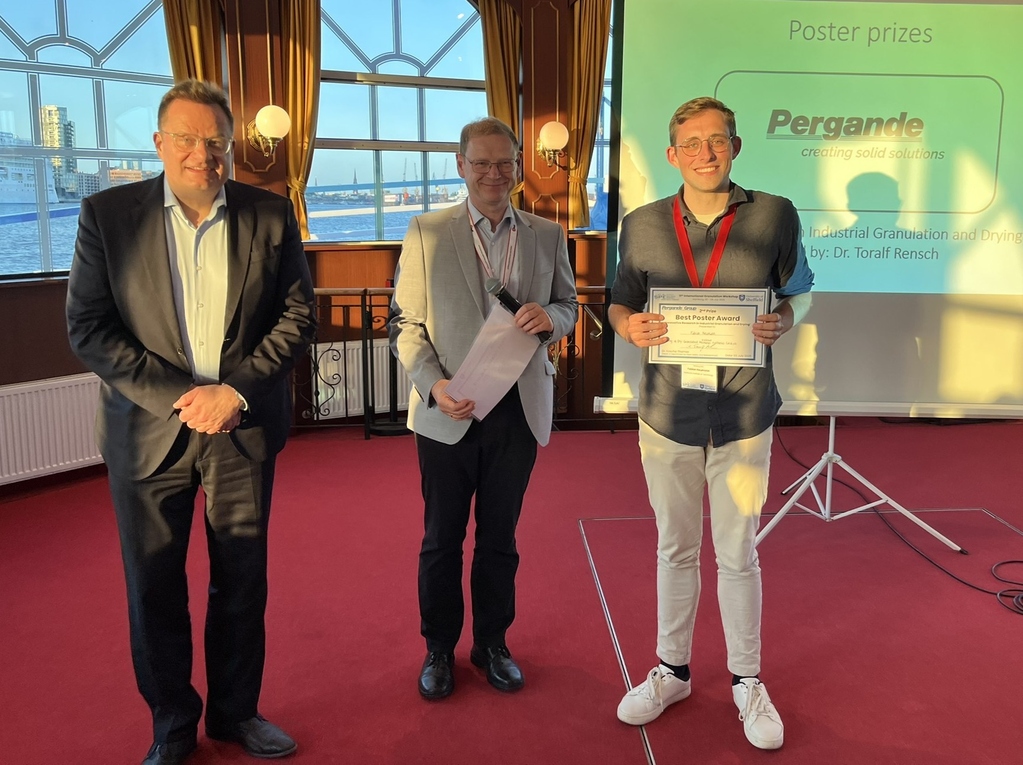
Fabian Neumann won a Poster Prize at the 11th International Granulation Workshop conference in Hamburg. Congratulations! The conference (2-4 July 2025) focussed on agglomeration, granulation and particle technology, which are important aspects during the transformation of (powdery) research catalysts into technical catalysts by tableting (see project Catalyst Shaping). The poster entitled "Tableting of Dry-granulated Methanol Synthesis Catalyst" presented initial results from shaping a Cu/ZnO/ZrO2 catalyst for the methanol synthesis.
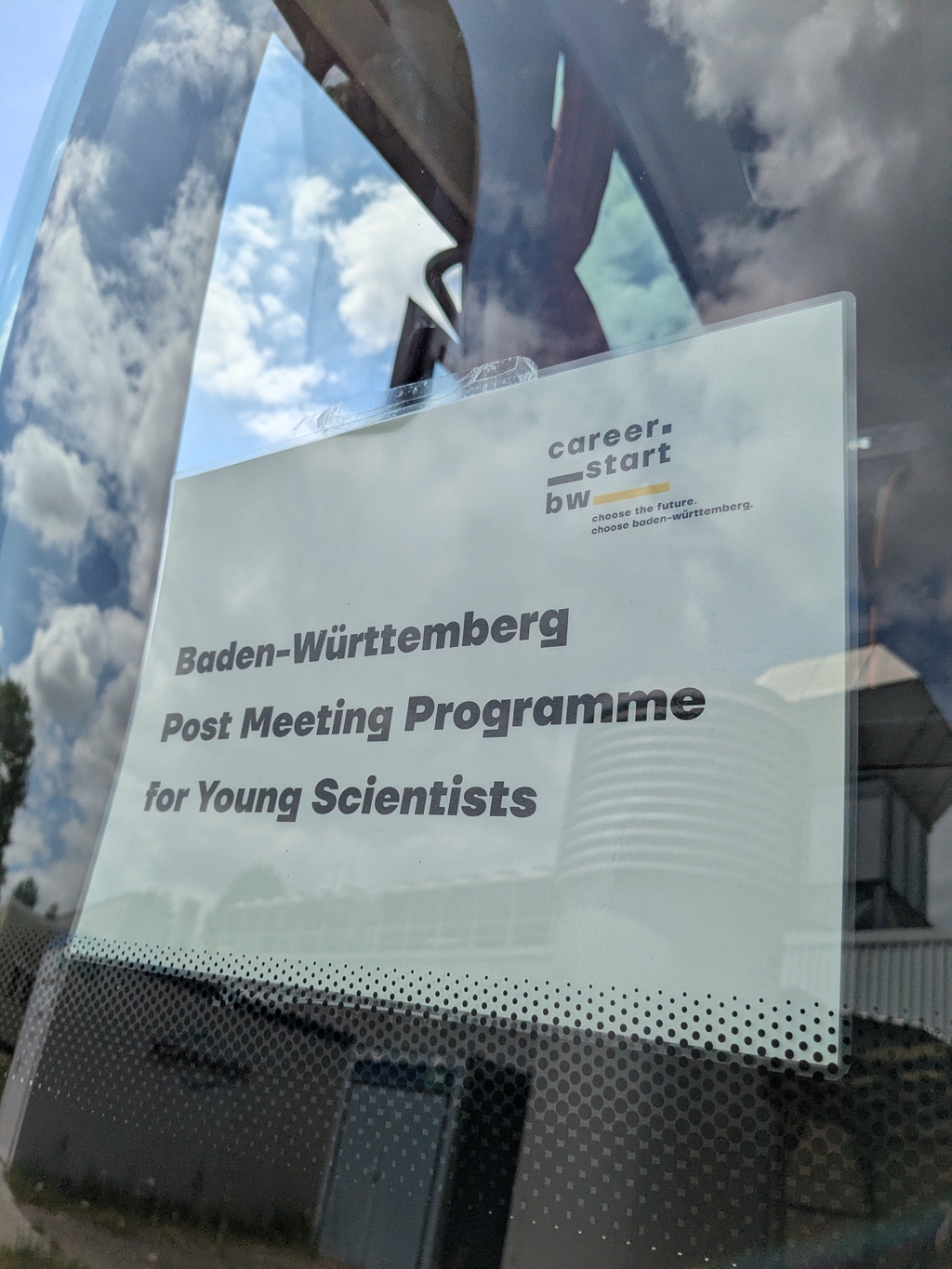
An international group of junior researchers visited IKFT on 9th July 2025 as part of a scientific tour in the state of Baden-Württemberg (THE LÄND) following the Nobel Laureate Meetings in Lindau, Germany. This year’s edition of this famous meeting was dedicated to chemistry with a special focus on sustainability and circular chemistry. During the follow-up tour, the thematic focus was also placed on these urgent topics where catalytic technologies are a major driver.
more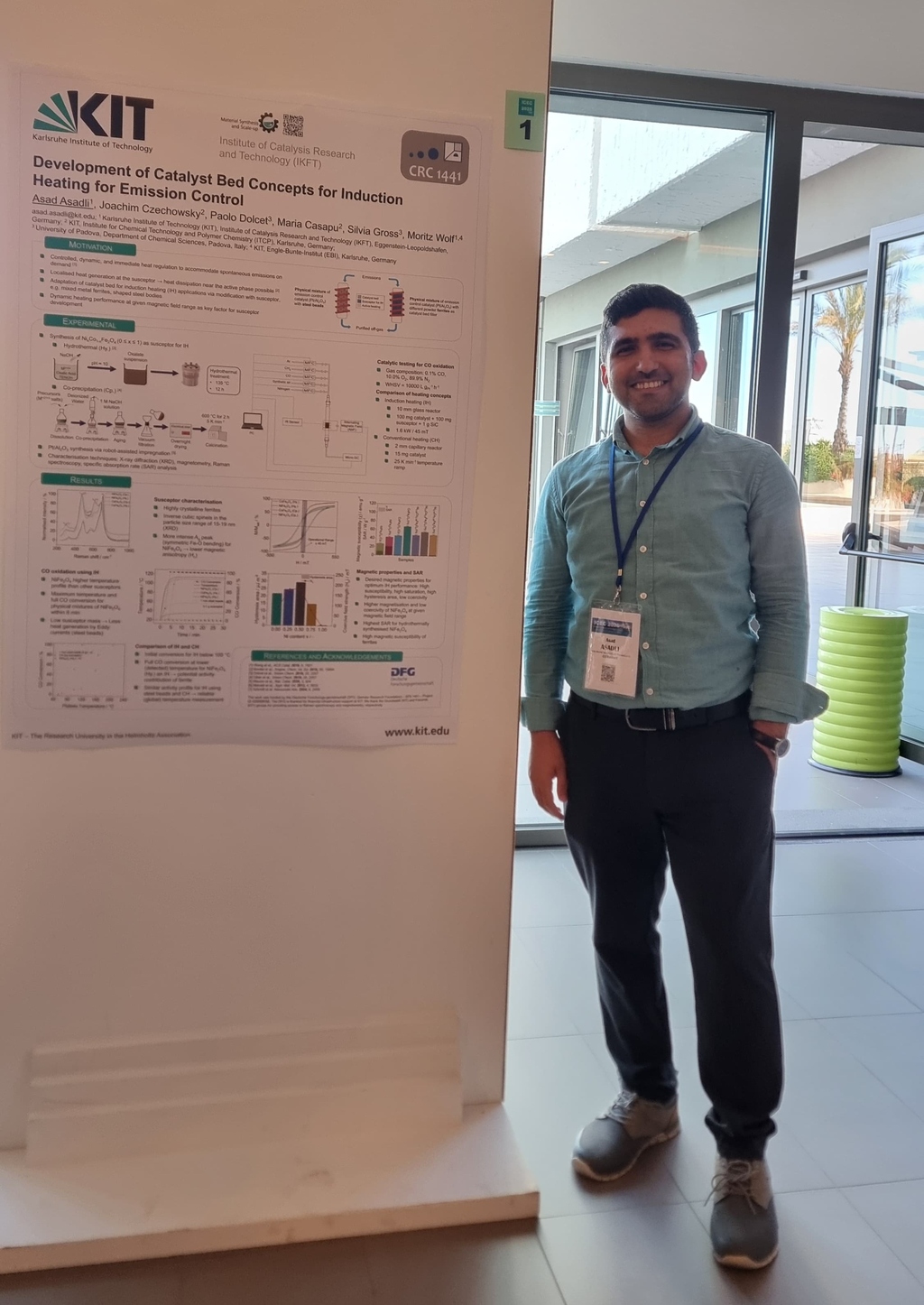
Asad Asadli won another Poster Prize, this time at the ICEC 2025 in Isola delle Femmine/Sicily, Italy. Congratulations!
more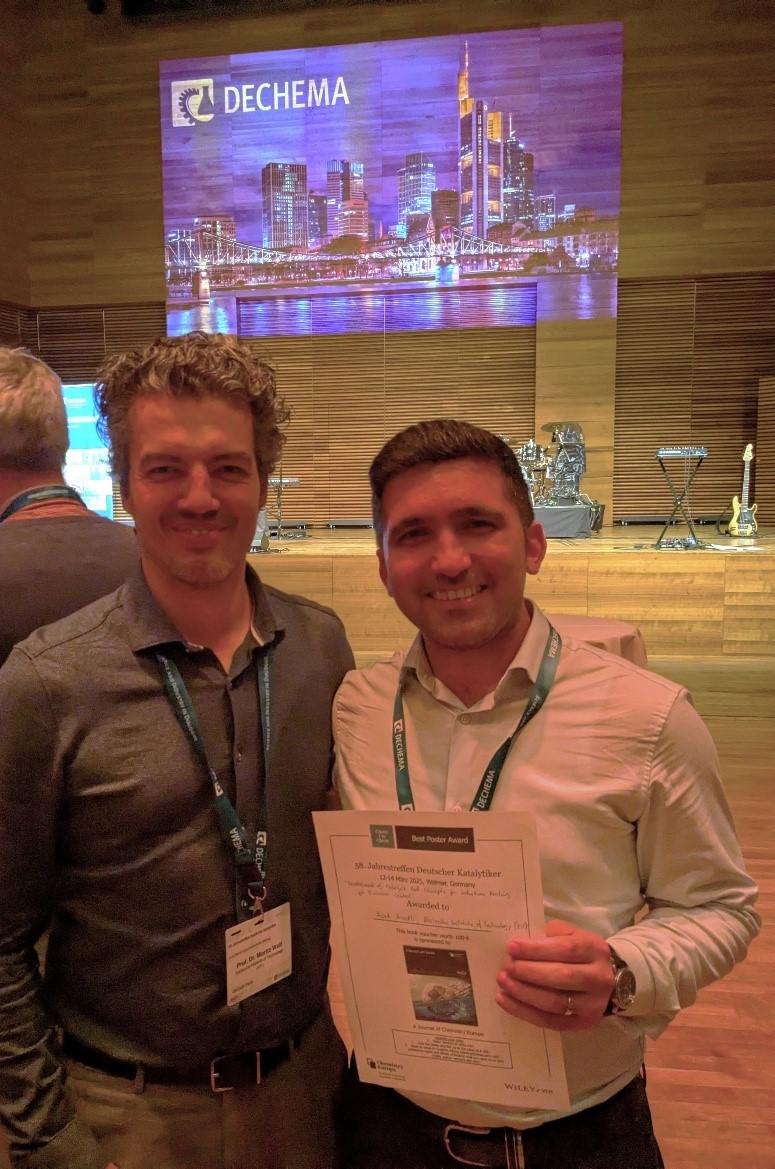
Asad Asadli won the Best Poster Award at the 58th international Annual Meeting of German Catalytic Scientists (Jahrestreffen Deutscher Katalytiker) in Weimar. Congratulations!
more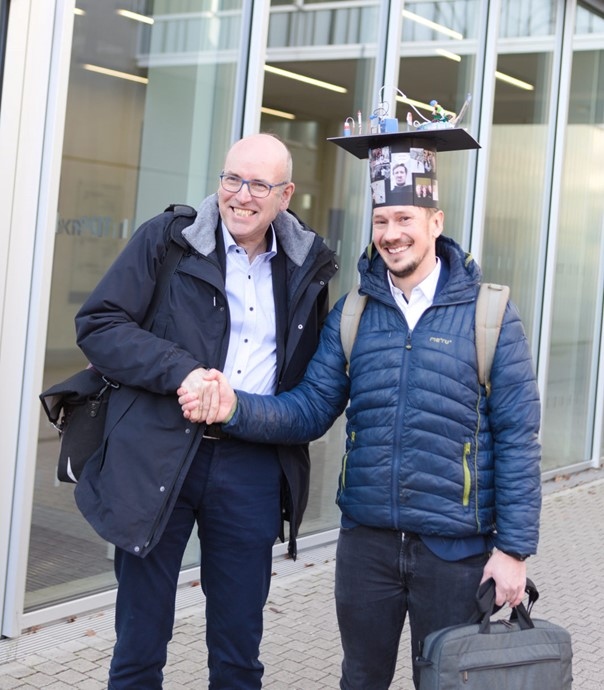
On February 18, 2025, Dr. Matthias Betz successfully passed his doctoral examination and defended his thesis on the topic “Production of gasoline-like paraffins from ethylene”.
more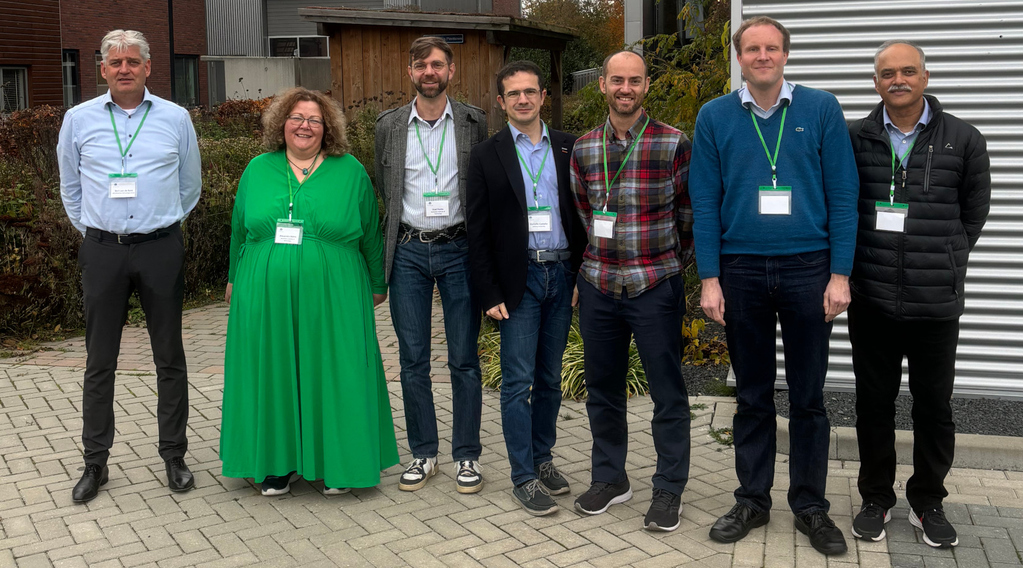
For the third time in a row, task lead of the International Energy Agency (IEA) Bioenergy Task 34 ‚Direct Thermochemical Liquefaction (DTL)‘ will remain at IKFT with Dr.-Ing. Axel Funke and Alex Böhm for the upcoming triennium 2025-2027. IEA Bioenergy Task 34 consists of representatives from research institutes and industry to advance commercial implementation of DTL technology. One key aspect of the upcoming work will be mobilization of diverse biogenic residues, a topic that has been fostered by IKFT for many years already. Additionally, cross cutting topics like negative CO2 emissions, flexible supply of energy, and synergies between hydrogen- and bio-based value chains are actively shaped within IEA Bioenergy.
Veranstaltungskalender
Process intensification approaches to upgrade C1 building blocks to liquid fuels and chemicals
Abstract:
The conversion of bioderived C1 intermediates, such as CO, CO2 and methanol, remains an active area of research due to the variety of fuels and chemicals that can be accessed through controlled catalytic transformations. A major interest at NREL is liquid biofuels production from lignocellulosic biomass, but many of these approaches are hindered by high conversion costs in the generation of high-quality fuels, driving research towards the development of new pathways with lower severity conditions, higher yields, and higher-quality products. This presentation will first feature a market-responsive biorefinery concept based on bio-derived methanol as the key intermediate, and the development of pathways to generate advantaged blendstocks for gasoline, jet, and diesel fuels. Process intensification approaches to enable cascade reactions in a single reactor, compared to a three-step process whereby MeOH synthesis, dehydration, and hydrocarbon synthesis occur in independent reactors, was explored to decrease capital and operating costs and increase overall energy and carbon efficiencies in a conceptual biorefinery. The second component of this seminar will focus on reactive capture of CO2, an emerging process intensification approach for power-to-X processes. Our group has shown that through a combination of catalyst and process design, methanol or carbon monoxide can be selectively produced.
Dr. Daniel R. Ruddy
National Renewable Energy Laboratory (NREL)
